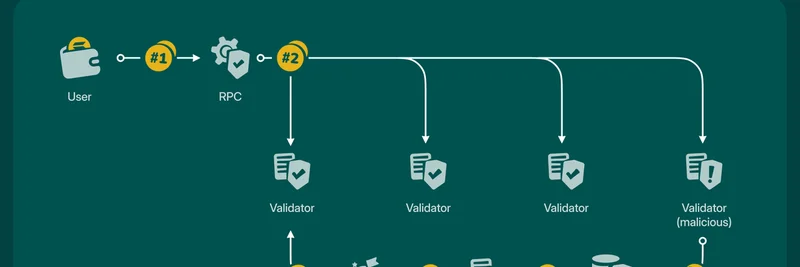If you've ever traded meme tokens on Solana, you know the thrill—and the frustration. One minute you're snagging a hot new coin, the next you're hit with unexpected slippage that wipes out your gains. Often, that's thanks to sandwich attacks, a sneaky form of Maximal Extractable Value (MEV) that's been plaguing the network. Back in August 2024, repe, a key figure at Marinade Finance, broke it down in a viral thread. Fast forward to October 2025, and repe is back with an update: the problem hasn't gone away, but Marinade is building real defenses.
Understanding Sandwich Attacks on Solana
Let's start with the basics. A sandwich attack happens when a malicious actor spots your transaction in the mempool (the waiting area for transactions) and inserts their own trades before and after yours. They buy low before your purchase drives up the price, then sell high right after, leaving you with a worse deal. On Solana, with its high-speed but sometimes congested network, this is especially common in volatile markets like meme tokens.
Repe's original thread from 2024 laid it out step by step:
- User to RPC: You send your transaction (like a meme token swap) to an RPC node, which acts as the gateway to the blockchain.
- RPC to Validators: The RPC forwards it to several validators ahead in the leader schedule to avoid delays. But if one is malicious...
- Malicious Validator and Private Mempool: The bad validator sends your tx to a private mempool, where it's hidden from the public eye.
- Searcher Spots Opportunity: A searcher (bot) scans the private mempool and identifies your vulnerable trade.
- Creating the Sandwich Bundle: The searcher crafts a bundle: their frontrun buy, your tx, and their backrun sell.
- Jito Block Engine: This bundle gets slotted into a block via Jito, executing the attack and profiting the searcher—at your expense.
Repe noted that multiple players—RPCs, validators, searchers, and even block engines—are involved, making blame tricky. And with a sandwich every 4 seconds back then, it's a big issue for everyday traders, especially in the meme coin frenzy where small edges matter.
The 2025 Update: Problems Persist, But Solutions Evolve
A year later, repe quoted his original thread to highlight that sandwich attacks are still rampant. He gave props to @0xGhostLogs for advancing detection tools, but pointed out a key flaw: static rules just lead to smarter attackers who adapt.
That's where Marinade Finance shines. As a leading liquid staking protocol on Solana, Marinade isn't just watching from the sidelines—they're engineering structural fixes to align incentives and reduce harmful MEV. Here's how:
1. Building Social Capital with Marinade Select
Marinade Select combines Know Your Validator (KYV) checks with reputation scoring. They onboard only trusted community validators, dodging sybils (fake identities) and relying on third-party verifications. The result? Zero tolerance for sandwiching, backed by data showing clean behavior. This creates a network where validators' reputations are on the line, discouraging bad acts.
2. Putting Skin in the Game via Protected Staking Rewards (PSR)
Marinade's PSR system requires validators to post bonds. If they go offline, jack up commissions, or break rules (like enabling sandwiches), they lose that bond, and their stake gets rebalanced. It's like a performance deposit—validators have real money at risk, making them think twice about shady dealings.
3. Transparent MEV Extraction Through Stake Auctions
Any extra value from MEV or priority fees is auctioned off fairly. Winners get the uplift, but it's all transparent, with proceeds flowing back to stakers as higher yields. This captures the "negative externalities" (fancy talk for bad side effects) and redistributes them positively, turning potential harm into user benefits.
Repe sums it up perfectly: "Fair order flow isn’t a dashboard. It’s incentives." In a ecosystem buzzing with meme tokens, where Solana's speed attracts both innovation and exploitation, these measures help protect traders and stakers alike.
Why This Matters for Meme Token Enthusiasts
At Meme Insider, we're all about demystifying the chaotic world of meme coins. Solana's low fees and fast transactions make it a hotspot for memes, but MEV like sandwiches can turn profits into losses. By staking with protocols like Marinade, you're not just earning yields—you're supporting a fairer network. If you're diving into Solana memes, consider how your staking choices impact the broader ecosystem.
For more on Solana's tech battles and meme token strategies, check out our knowledge base. What's your take on MEV—have you been sandwiched? Drop your stories below!



